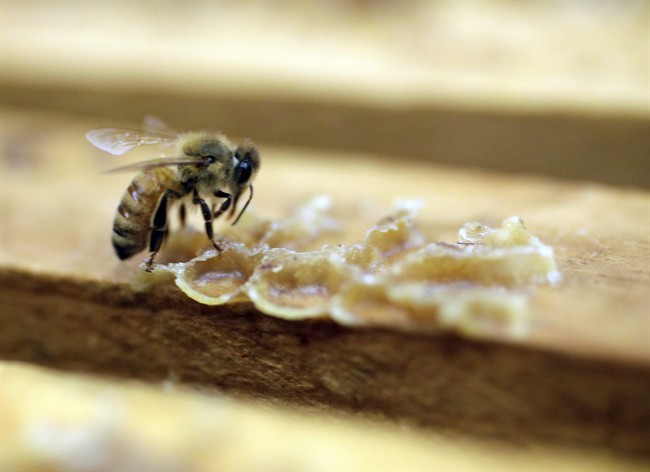TORONTO – On Tuesday, the Ontario Ministry of the Environment and Climate Change announced that it plans on reducing a pesticide linked to widespread bee losses across the province.

Over the past few years, there has been mounting evidence against the widespread use of neonicotinoids, or neonics, a pesticide used on corn, soy and other foods.
READ MORE: Silence of the bees: ‘It has to stop. It just has to stop.’
The province said that it plans to work on a proposal that will reduce neonicotinoid-treated corn and soybean seed. If the proposal is approved, the rules will take effect on July 1, 2015 for the following agricultural season. The plans are to reduce the pesticide by 80 per cent by 2017.
The historic step was welcomed by Ontario Beekeepers’ Association (OBA).
“The Ontario Beekeepers’ Association is very pleased with the announcement,” said Tibor Szabo.
Szabo said that the news is welcomed, even if 20 per cent of the fields will still be using neonics. The plan will at least give beekeepers an identifiable area where they know not to keep their livestock.
“It gives us a place to keep bees again,” Szabo said. “It’s a huge step forward.”
The Canadian Association of Physicians for the Environment (CAPE), which called for a ban on neonics on Nov. 18, issued a statement Monday, also supporting the decision.
“Our doctors are very pleased that Ontario has listened to health professionals and is planning to substantially cut neonic pesticide use on corn and soy,” says CAPE Executive Director Gideon Forman. “This is a crucially important step and will go a long way toward protecting pollinators -– and therefore our food supply.”
Szabo said that he is still seeing bee losses this year. So far, he’s had 1,100 poisoned colonies.
“It just doesn’t stop.”


Comments